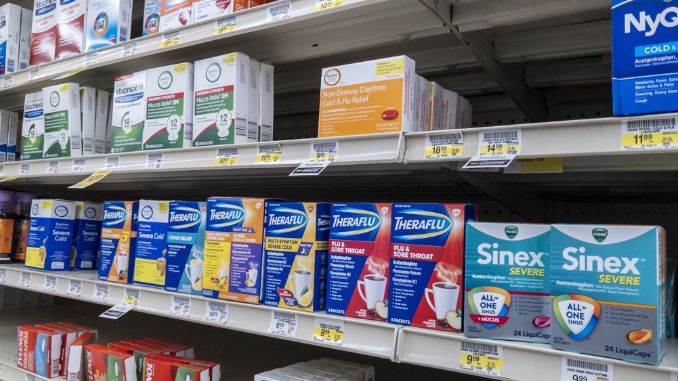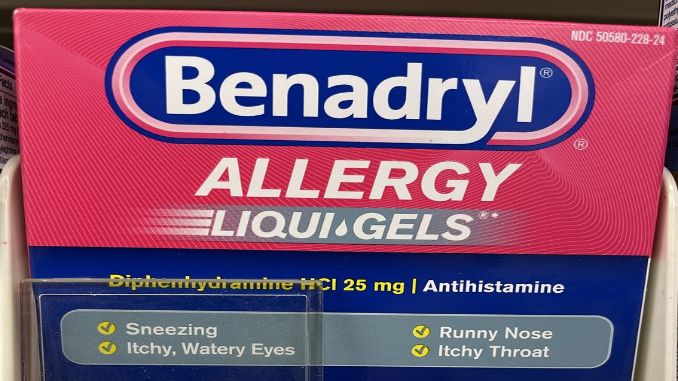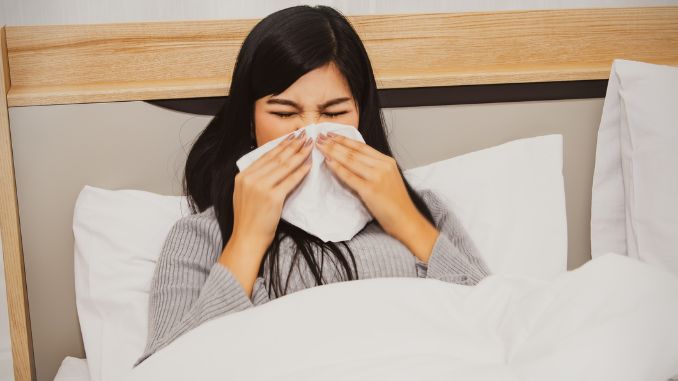Ever feel like you’re breathing through a clogged straw? A stuffy nose is frustrating, whether it’s from allergy congestion, a cold, or sinus issues.
But before you grab any medication, it’s important to know what’s causing your congestion and whether a decongestant or antihistamine is the right fix.
What’s Causing Your Nasal Congestion?

Nasal congestion happens when blood vessels in your nasal passages swell up, making it harder to breathe. Here’s what could be behind it:
- Colds & Flu – Viruses cause inflammation and mucus buildup.
- Allergies – Pollen, dust, or pet dander trigger an immune response, leading to swelling and mucus production.
- Sinus Infections – Bacteria or viruses inflame the sinuses, causing pressure and congestion.
- Weather Changes – Dry air or humidity can irritate nasal passages.
Your treatment should depend on what’s causing the problem.
How Decongestants and Antihistamines Work?

Decongestants and antihistamines are two types of medications that work in different ways to relieve nasal congestion and allergy symptoms.
Decongestants activate alpha-adrenergic receptors in the nasal blood vessels, leading to vasoconstriction, which reduces swelling and congestion. This allows for easier breathing and relief from a stuffy nose. Decongestants can be found in various forms, including nasal sprays, tablets, and liquids.
Antihistamines, on the other hand, work by blocking the H1 histamine receptors, a chemical released by the body during an allergic reaction [3].
Histamine causes blood vessels to dilate, leading to increased blood flow and swelling in the nasal passages. By blocking histamine, antihistamines can help relieve allergy symptoms such as a runny nose, sneezing, and itching.
When taken together, decongestants and antihistamines can effectively relieve both nasal congestion and allergy-related symptoms, offering more comprehensive relief.
However, combining these medications should be done cautiously and under the guidance of a healthcare professional, especially for individuals with pre-existing health conditions.
Treatment for a Stuffy Nose: Antihistamines or Decongestants?

Both medications help, but they work very differently.
- Decongestants (like pseudoephedrine or phenylephrine) shrink swollen blood vessels in your nose, helping you breathe easier. Best for colds, sinus infections, or short-term congestion.
- Antihistamines (like loratadine or diphenhydramine) block histamine, the chemical behind allergy symptoms. Best for allergy-related congestion, sneezing, and itching.
Understanding how antihistamines and decongestants work together can help you choose the right treatment for your symptoms [1].
Which one should you take?
- Cold or sinus congestion? Go for a decongestant.
- Allergy-related stuffy nose? Try an antihistamine.
- Both? Some meds (like Claritin-D) combine both for allergies plus congestion relief.
Home Remedies for a Stuffy Nose?

In addition to medication, various natural remedies can help ease nasal congestion [2]. These remedies can be used alone or in combination with medication to provide temporary relief.
- Use a humidifier: Adding moisture to the air can help loosen nasal secretions and soothe inflamed nasal passageways.
- Keep your head elevated: Sleeping with your head propped up can promote sinus drainage and help reduce congestion.
- Stay active: Engaging in light physical activity, like yoga, may temporarily alleviate nasal congestion by improving circulation, though its direct effectiveness is limited.
- Steam inhalation: Breathing in warm steam from hot water or a steam inhaler can help break up thick mucus and soothe nasal inflammation.
- Keep hydrated: Staying hydrated helps thin mucus, making it easier for your nasal passages to drain.
Be sure to consult a healthcare professional if your symptoms continue or worsen despite using these home remedies.
Proper Use, Precautions & Side Effects for High Blood Pressure
Like any medication, decongestants and antihistamines aren’t for everyone. When choosing a cold medicine, make sure to consider your specific symptoms and be aware of any potential side effects.
1. Decongestants and Nasal Sprays

- Use for a maximum of 3 days to avoid rebound congestion, a condition where prolonged use causes the nasal passages to become more congested when the medication wears off.
- Avoid if you have high blood pressure, heart issues, or glaucoma. People with heart disease should consult a healthcare professional before using decongestants, as these medications can potentially aggravate existing heart conditions.
- Side effects: Jitteriness, trouble sleeping, increased heart rate.
Dr. Michael Twyman, a cardiologist, warns: “Decongestants can raise blood pressure, so people with heart conditions should avoid them.” There are existing studies suggesting that certain medications have the potential to enhance blood flow [4].
2. Antihistamines

- Non-drowsy options (loratadine, fexofenadine) are great for daytime use. Always seek advice from a healthcare professional to ensure the antihistamine you choose is both safe and suitable for your specific needs.
- Older antihistamines (diphenhydramine, chlorpheniramine) help with sleep but can cause drowsiness.
- Side effects: Dry mouth, dizziness, drowsiness (especially first-gen types).
Dr. Sandra Lin, an ENT specialist, adds: “For allergy sufferers, a daily antihistamine can help prevent symptoms before they start.”
Final Thoughts
If your stuffy nose is allergy-related, antihistamines are the way to go. If it’s from a cold or sinus issue, reach for a decongestant—but only short-term. Always check labels and ask your doctor if you have health conditions.
Still congested? Consider saline rinses, steam, and staying hydrated—sometimes, the best fix is the simplest one.
Got a favorite remedy for congestion relief? Let me know in the comments!
Find the right relief for your stuffy nose with decongestants and antihistamines. For more health insights, check out our Master Guide to Inflammation!

FAQ’s
What is a good antihistamine and decongestant?
- Good antihistamines: Loratadine (Claritin), Cetirizine (Zyrtec), Fexofenadine (Allegra).
- Good decongestants: Pseudoephedrine (Sudafed), Phenylephrine.
Should I take a decongestant or antihistamine for clogged ears?
If your clogged ears result from allergies, an antihistamine can help alleviate symptoms by reducing inflammation. However, if the congestion is due to sinus issues, a decongestant may be more effective in providing relief.
What drugs should not be taken with antihistamines?
Antihistamines should not be taken with other sedatives, muscle relaxers, or sleeping pills, such as benzodiazepines (e.g., diazepam) or opioids, as they can increase drowsiness. Additionally, alcohol should be avoided due to its potential to enhance sedative effects. In some cases, decongestants can also interact with blood pressure medications, so it is important to consult a doctor before combining them.
Is cetirizine a decongestant?
Cetirizine is an antihistamine, not a decongestant. It helps relieve allergy symptoms like sneezing, a runny nose, and itching. However, it does not provide relief for nasal congestion.
When should antihistamines be avoided?
Antihistamines should be avoided if you have conditions such as glaucoma, an enlarged prostate (BPH), or severe liver or kidney disease. Additionally, first-generation antihistamines, which can cause drowsiness, should not be taken when driving or operating heavy machinery.
Can I take a decongestant and antihistamine together?
It is possible to take a decongestant and an antihistamine together, as many combination medications, such as Claritin-D or Allegra-D, contain both. However, consult a doctor before combining these medications, particularly if you have underlying conditions like hypertension or glaucoma.

Rick Kaselj MS, is a leading kinesiologist and injury specialist as well as co-creator of the best-selling Unlock Your Hip Flexors program. Rick creates exercise programs that help people heal injuries and eliminate pain, so they can go back to living a full, active, healthy life.



